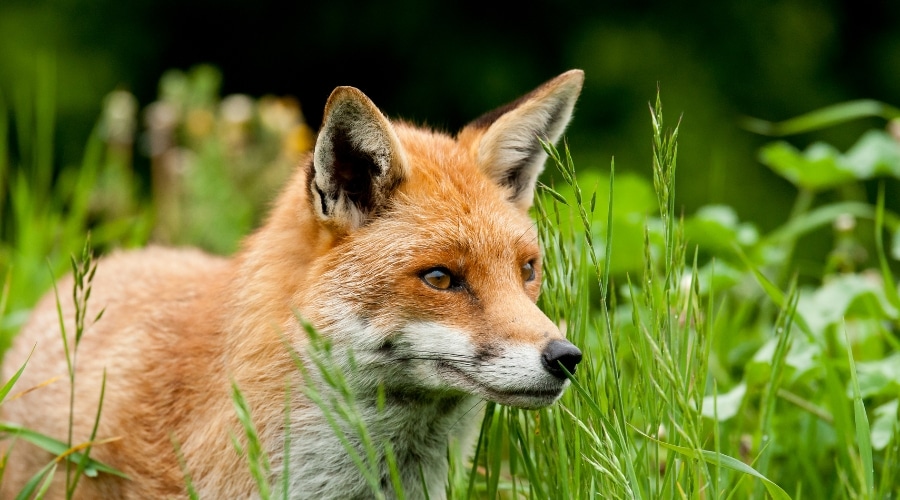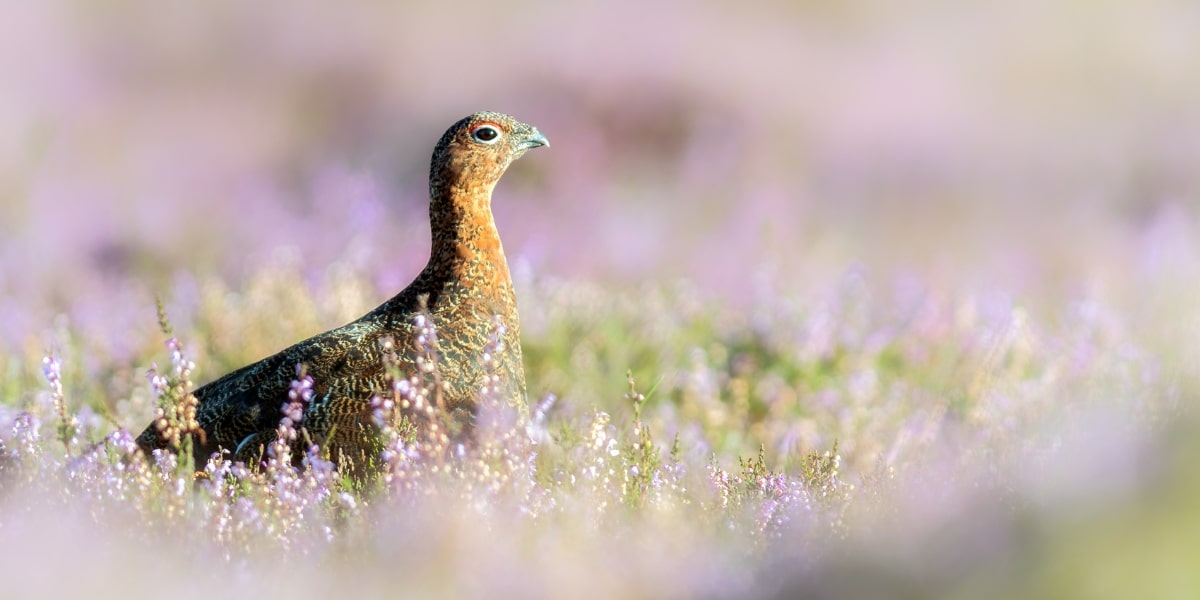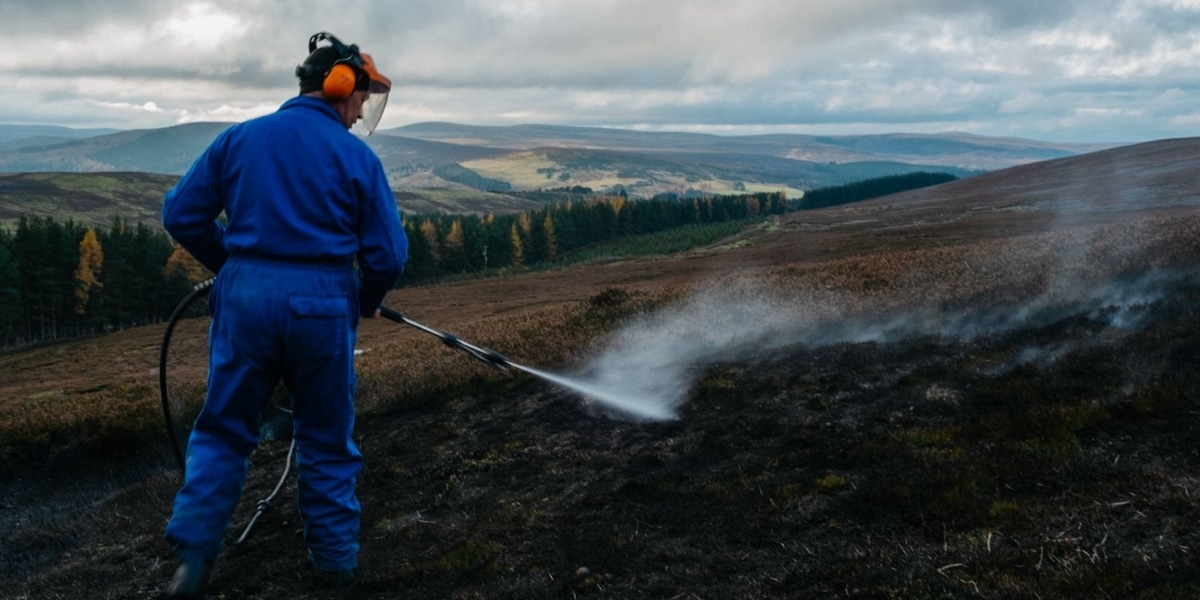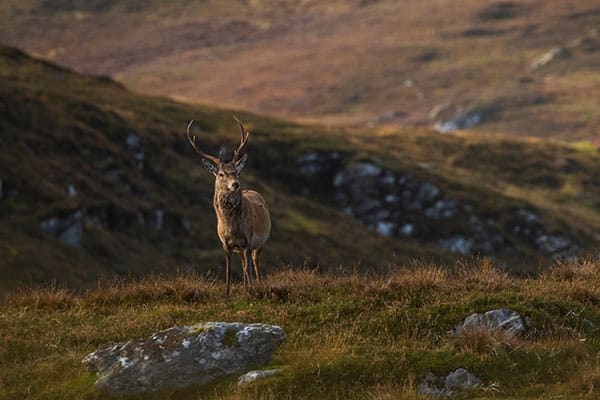
What does the Hunting with Dogs Bill mean for shooting?
Following the passing of the Hunting with Dogs (Scotland) Bill, read how the new legislation will affect shooting in Scotland.
Get information on the legal shooting season for mammals and birds in the UK.
Apply for funding for your project or make a donation today
Comprehensive information and advice from our specialist firearms team.
Everything you need to know about shotgun, rifle and airgun ammunition.
Find our up-to-date information, advice and links to government resources.
Everything you need to know on firearms law and licensing.
All the latest news and advice on general licences and how they affect you.

Following last week’s vote on Stage 2 amendments to the Wildlife Management and Muirburn (Scotland) Bill, BASC Scotland director, Peter Clark, gives a summary of events.
Last week saw the conclusion of Stage 2 of the Wildlife Management and Muirburn (Scotland) Bill in the Scottish Parliament. Voting concluded late on the Wednesday evening.
The Wildlife Management and Muirburn (Scotland) Bill seeks to introduce grouse shoot, muirburn and trapping licences. At its inception, the bill did not provide the legal safeguards for licence holders in respect of grouse shoot licence suspension, a power which could have potentially contravened articles within the European Convention on Human Rights.
BASC was opposed to any licensing from the outset. However, the Scottish Government’s clear intention was to bring this legislation forward in this session of the Parliament.
BASC has lobbied MSPs extensively over the past year to lodge amendments to make the bill more acceptable and workable.
Below is a summary of some of the key events during the dual voting session:
Grouse shoot licences
Regarding grouse shoot licences, the clauses allowing NatureScot to suspend muirburn licences without evidence of a relevant offence have been removed, providing increased legal protections for licence holders against unwarranted allegations. This alteration also extends to muirburn and trap licences.
Annual licences for section 16AA grouse moor licences have been eliminated, with the renewal period extended to five years. This adjustment offers greater stability for grouse moor businesses in planning future investments. NatureScot is likely to view this positively as they had previously suggested a three to five-year renewal timeframe to align with staffing and resource constraints.
Both of the above amendments were significant victories for BASC, and came as a result of intense lobbing to secure the changes.
Muirburn licences
Concerning muirburn licences, a clause prioritising alternative vegetation control methods over muirburn on peatland has been removed. This change aims to ensure muirburn can be utilised where most suitable. This too was an amendment lobbied for by BASC and a successful outcome.
Additionally, mandatory training is now required to obtain a muirburn licence, a measure unanimously approved.
The muirburn season has been extended by two weeks, commencing on 15 September each year, although it will also close two weeks earlier. This adjustment allows flexibility for land managers to conduct muirburn in September, albeit with an earlier season closure.
The Scottish Government cites concerns about the nesting times of upland birds impacted by muirburn, referencing a BTO report indicating only marginal shifts in nesting times due to climate changes every eight to ten years.
Trap licences
Regarding trap licences, a specific offence for trap damage and tampering has been introduced, instilling confidence among practitioners that such incidents will be thoroughly investigated.

Despite the above amendments, bill still presents challenges for gamekeepers and licence holders, posing risks to effective and sustainable grouse moor management.
Addition of other gamebirds to licensing regime
Disproportionate powers concerning the addition of further gamebird species remain in the bill. Still existing is an amendment which aims to restrict the addition of other gamebirds to 16AA licences without clear conservation rationale.
Minister Jim Fairlie reassured that any inclusion of additional birds would undergo consultation and committee scrutiny. Nonetheless, there remains a possibility of adding other gamebirds to the licensing scheme in the future if deemed necessary.
Use of snares banned
A total ban on snares passed without a licencing scheme for modern snares/humane cable restraints. Unless challenged at Stage 3 in March, the ban will take effect upon Royal Assent, anticipated in March/April.
Additional powers for the SSPCA
The government amendment expanding the SSPCA‘s power to investigate wildlife crime has also passed, aligning with the Bute House Agreement between the SNP and the Green Party.
Minister Jim Fairlie outlined conditions for the new powers, addressing concerns from the police, sector, and judicial stakeholders. A commitment has been made to review these powers through an amendment at Stage 3.
Overall, Stage 2 of the bill resulted in significant victories for BASC and the wider shooting sector. However, discussions with Minister Jim Fairlie are planned ahead of Stage 3 to advocate for further changes to address the remaining impractical or unwarranted provisions.
Want to read more from BASC Scotland? Head to our dedicated pages here.

Following the passing of the Hunting with Dogs (Scotland) Bill, read how the new legislation will affect shooting in Scotland.

If you’re passionate about shooting, rural heritage, or looking for a fantastic day out, these events will be right up your alley.

Read our open letter to the Scottish Animal Welfare Commission following the Scottish Government’s response to the deer working group project.
Sign up to our weekly newsletter and get all the latest updates straight to your inbox.
© 2025 British Association for Shooting and Conservation. Registered Office: Marford Mill, Rossett, Wrexham, LL12 0HL – Registered Society No: 28488R. BASC is a trading name of the British Association for Shooting and Conservation Limited which is authorised and regulated by the Financial Conduct Authority (FCA) under firm reference number 311937.
BASC Direct Ltd is an Introducer Appointed Representative of Agria Pet Insurance Ltd who administer the insurance and is authorised and regulated by the Financial Conduct Authority, Financial Services Register Number 496160. Agria Pet Insurance is registered and incorporated in England and Wales with registered number 04258783. Registered office: First Floor, Blue Leanie, Walton Street, Aylesbury, Buckinghamshire, HP21 7QW. Agria insurance policies are underwritten by Agria Försäkring.
If you have any questions or complaints about your BASC membership insurance cover, please email us. More information about resolving complaints can be found on the FCA website or on the EU ODR platform.